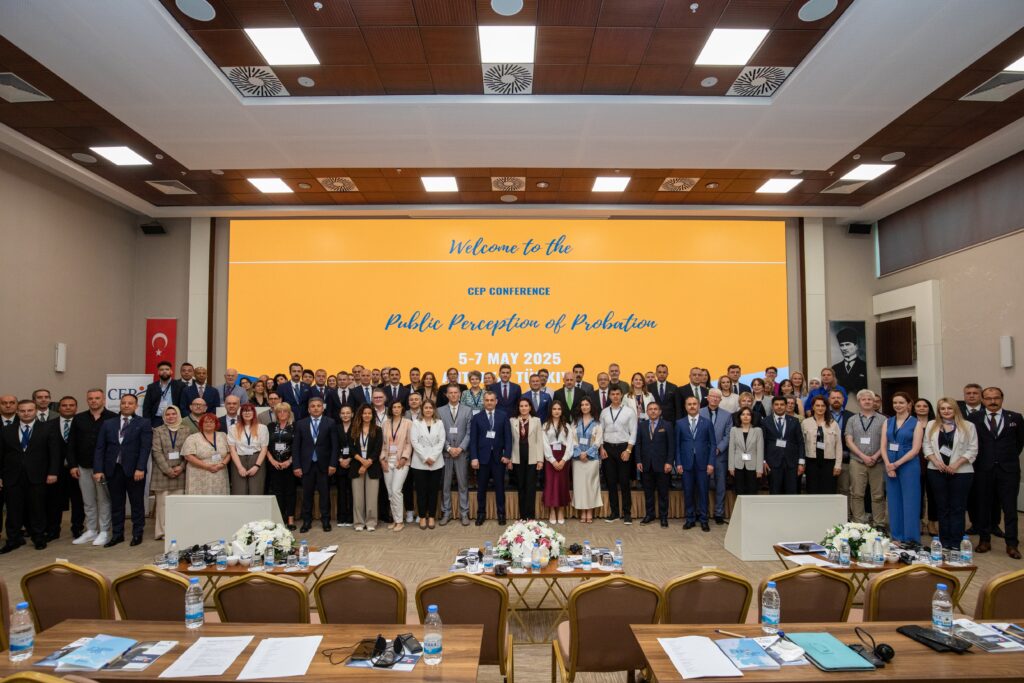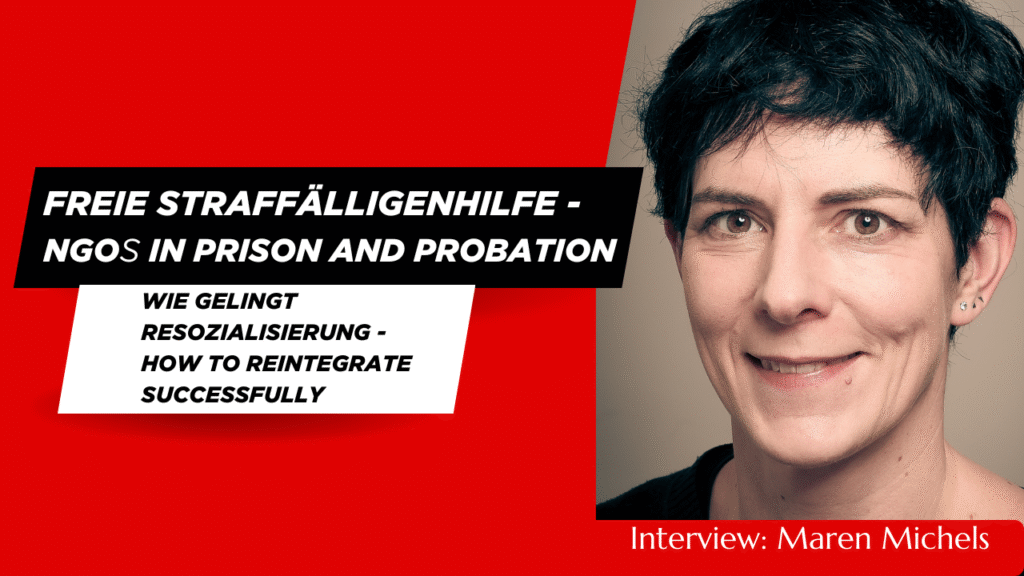Previous Article
News
Dealing with the issue of radicalisation – the German case in Lower Saxony
Radicalisation, especially terrorism and violent extremism, have become increasingly important for the probation and prison service in recent years. Around 1.000 German jihadists have traveled to the IS militia, to Syria or Iraq to participate in combat operations or to support them in other ways. About one third came back to Germany, more than 150 died. There is a lot of discussion at a technical and political level about how to handle radicalised people or returnees in prison and probation or how others can be protected from becoming radicalised. For Germany, dealing with this topic is anything but easy. Responsibility for the penal system and the probation service lies with the federal states. We have at least sixteen federal states in Germany, with 180 prisons and 64.351 inmates (reporting date 30.11.2017) and 182.715 persons under probation/parole (reporting date 31.12.2011). Statistical data on persons in prison or those under probation who are extremists does not exist. In other words: the Federal Government can make the legal framework, but the implementation of concepts, etc. for dealing with such groups of people is carried out by the federal states.
In the last two to three years, there have been different impulses at a federal level to deal with the topic of radicalisation in the probation and prison service. An example is the new funding programme of the German Federal Government with the title ‘Prevention and De-radicalisation in Prison and Probation” of the federal programme Live Democracy. The Federal Government supports one project per federal state from 2017 to 2020 to prevent radicalisation in prison and probation. The target group for these projects is juvenile offenders. The global objectives of the programme are: to recognise and prevent radicalisation in prison and probation, to avoid discrimination, to interrupt the radicalisation processes, to support exits and to build networks.
Another example is legal changes at a federal level. Since one year ago, the Federal Republic of Germany changed the criminal law. It is now possible to use electronic monitoring for persons who are preparing a serious act of violent subversion, are financing terrorism or who are supporting a national or foreign terrorist organisation.
An example of how a federal state works with radicalisation is presented below by Lower Saxony.
Probation work with violent extremist offenders in Lower Saxony
In addition to criminal jurisdiction, the public prosecution offices and the law enforcement institutions, the AJSD (agency for criminal justice social work in Lower Saxony) is the fourth pillar of the administration of criminal justice in Lower Saxony. About 450 employees, who perform duties in the fields of probation service, supervision and court assistance, are working in the AJSD.
Although the probation service in Lower Saxony has been dealing with the topic of radicalisation (mostly right and left wing extremism) before, working with religiously motivated violent extremist offenders (VEOs) is rather new. Until now, the number of probationers convicted of terror related crimes is small, but more of them are expected to be released from prison in the near future. Working with this group of people represents a particular challenge for probation officers. VEOs are estimated to have a high risk of reoffending and cause a serious threat to public security. Probation measures, like keeping someone away from certain persons or from certain mosques, are difficult to control by the ambulant means of the probation service.
Moreover, those cases are often already known to the media, which may cause a negative degree of attention around the offender, which is obstructive for the reintegration process. It is a balancing act between the interest of security authorities in the experiences of the probation officers working with a VEO and the professional secrecy as a crucial base of probation work. To enable a trustful working relationship with a VEO, transparency about the reporting commitment and handling of information still has to be ensured.

There is an urgent necessity of combined efforts of different institutions. In Lower Saxony NGOs specialised in exit work can be involved in the assistance of VEOs during the prison term already and continue working with the VEO after release in cooperation with the probation service. A close transition management at an early stage is very important. Several months before and regularly after the release of a VEO, case conferences managed by the State Office of Criminal Investigation take place, involving all relevant stake holders, like police officers of the State Office of Criminal Investigation, prison management, probation officers and representatives of law enforcement authorities. Those conferences are aimed at harmonising tasks and interventions and mutual exchange of information within the bounds of professional secrecy. Meanwhile, every VEO is surveyed before release by a special assessment unit within the penintentiary in Hannover.
To prepare probation officers for working with VEOs and create confidence on dealing with the topic of radicalisation in general mandatory, awareness trainings have been organised in the AJSD. Moreover, two probation officers have attended special trainings in the field of religiously motivated extremism, who serve as contact persons and knowledge multipliers.

Related News
Keep up to date with the latest developments, stories, and updates on probation from across Europe and beyond. Find relevant news and insights shaping the field today.
Recap

CEP Events, Communication and Awareness-Raising
Recap: Conference on Public Perception of Probation
06/05/2025
From 6 to 7 May, the CEP Conference on the Public Perception of Probation in Europe took place in Antalya, Türkiye, bringing together over 100 participants from more than 20 countries. The event offered space for open discussion, exchange of experiences, and practical ideas on how probation is seen and supported across Europe.
New

Probation in Europe
New Interview Online with Felix Gerike, a survivor of a knife attack
01/05/2025
What do victims of violent crime need to recover—and what can be done to prevent such attacks?
In the latest episode of Division_Y, Jo Tein, CEP board member, speaks with Felix Gerike, a survivor of the 2023 Brokstedt knife attack in Germany. Felix played a crucial role in disarming the attacker, helping to prevent further harm. He shares his personal experience, reflections on victim support, and his views on justice and policy responses to violent crime.
Probation in Europe
New Executive Summaries for the report on Building Probation Capacity in Spanish and Italian
01/05/2025
Updated

CEP Board, Probation in Europe
New Interview Online: Maren Michels – The Role of NGOs in Probation
22/04/2025
In the newest Division_Y interview, Maren Michels, director of the Hamburg Welfare Association, shares her experiences and reflects on the vital role that NGOs play in supporting people during and after incarceration.
New

CEP Events
Want to Win a CEP Award? See How Finland Did It – Apply for 2025!
22/04/2025
We’re excited to share an exclusive interview with the winners of the Development of National Probation Services Award from the CEP Awards 2022:
The Prison and Probation Service of Finland.
New

Volunteers
International Day for Community Volunteers
17/04/2025
17 April – International Day for Community Volunteers!
Today, we celebrate the inaugural International Day for Community Volunteers Supporting Offender Reintegration—a day dedicated to acknowledging the vital contributions of volunteers who assist individuals in their journey back into society.
This initiative was launched during the 2nd World Congress for Community Volunteers, held alongside the 6th World Congress on Parole and Probation in The Hague (16–18 April 2024).
At CEP, we’re proud to support the official Declaration on the International Day for Community Volunteers. We’re also actively involved in the CoPPer project—a European initiative aimed at promoting community participation in probation services. CoPPer focuses on training volunteers to support individuals under supervision, helping them access education, employment, and community connections.
A heartfelt thank you to all the community volunteers out there—your dedication makes a real difference.
Subscribe to our bi-monthly email newsletter!
"*" indicates required fields
- Keep up to date with important probation developments and insights.

